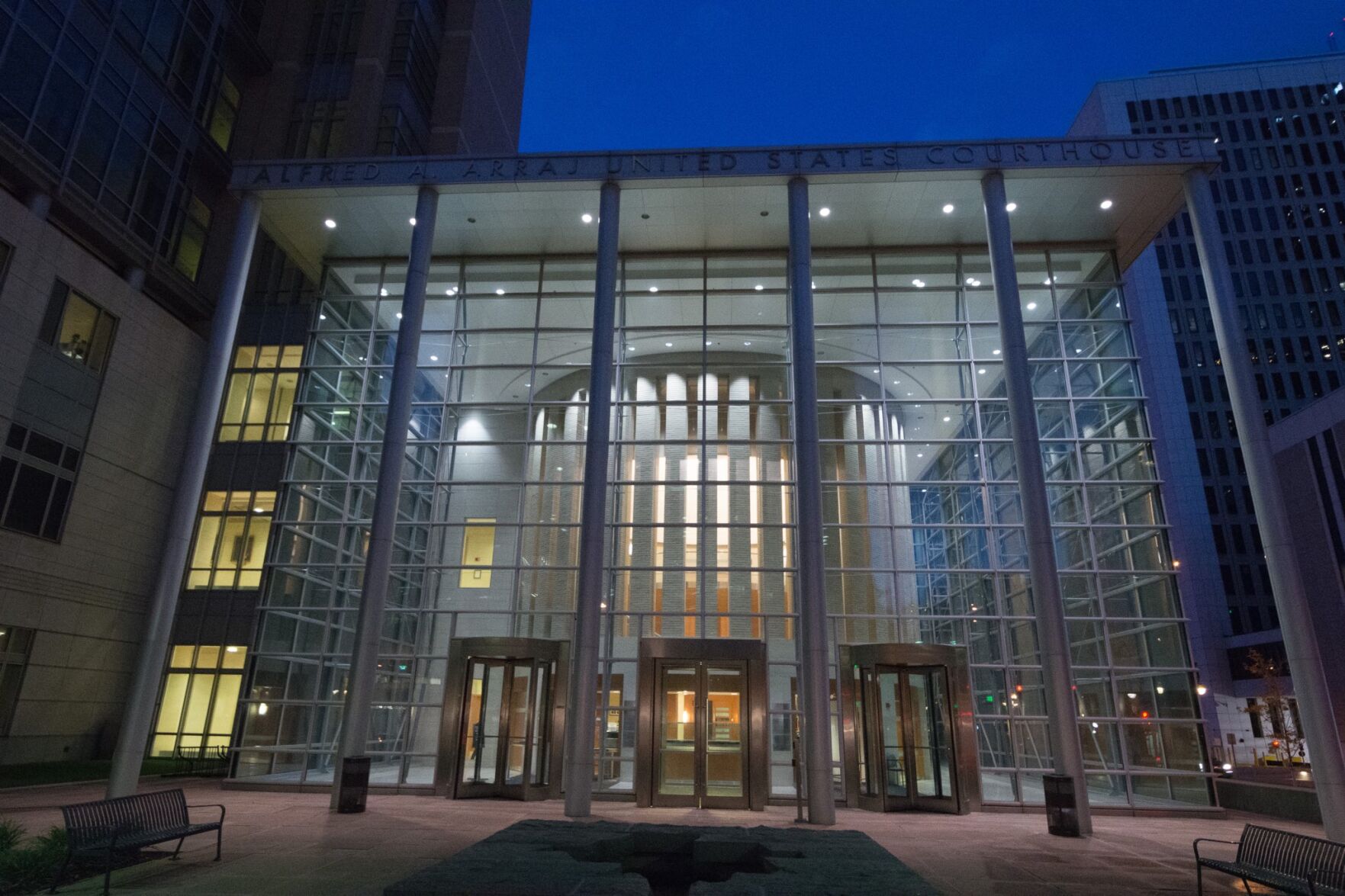Judge considers immunity for Cherry Creek school officials in student’s free speech case

Even though the federal appeals court based in Denver decided a high school student had plausibly claimed administrators violated his constitutional rights when they disciplined him for an anti-Semitic “joke,” a judge appeared doubtful this week that Cherry Creek School District personnel would have known their actions clearly ran afoul of the law.
In July, the U.S. Court of Appeals for the 10th Circuit reinstated the lawsuit of C.G., a former student at Cherry Creek High School, after determining an offensive Snapchat post did not give rise to any “substantial disruption” that would justify speech-based discipline. The 10th Circuit also believed C.G. had credibly alleged he was not given the opportunity to tell his side of the story before the school imposed its discipline.
On Monday, U.S. District Court Senior Judge R. Brooke Jackson, whose original dismissal of the lawsuit the 10th Circuit reversed, suggested he did not see eye-to-eye with the higher court’s reading of C.G.’s allegations
“His whole story was it was intended as a joke. ‘I didn’t mean it. I apologize.’ What else is there to his story than that?” Jackson said.
The current proceedings in C.G.’s lawsuit revolve around whether individual school district employees, including the superintendent and high school principal, are entitled to qualified immunity for their disciplinary actions against C.G. Qualified immunity generally shields government employees from civil liability unless they violate a person’s clearly-established legal rights. Courts determine if a right is clearly established largely by looking to prior judicial precedent.
With the 10th Circuit already recognizing C.G. had alleged a constitutional violation, the only remaining question was how clear his rights were at the time.
“How is it that the individual defendants were on notice that C.G. could not be lawfully disciplined for the Snapchat post?” asked Jonathan P. Fero, the lawyer for the school district. “Was there any clearly-established law providing that direction to school district employees at that time, September 2019? The answer is no, there was not.”
One Friday evening in September 2019, C.G. and his friends visited a thrift store. They tried on various clothing items as costumes. At one point, some of the boys put on hats that were reminiscent of the World War II era. C.G. took a picture of them using Snapchat and added the caption, “Me and the boys bout to exterminate the Jews.”
Although Snapchat posts are self-deleting, C.G. took the photo down early and posted an apology, calling the picture “a joke.” One of C.G.’s Snapchat friends showed the original picture to her father, who allegedly spread it to other Jewish people. At one point, the Arapahoe County Sheriff’s Office received a call about the picture, but determined there was no threat.
Over the weekend, Principal Ryan Silva received an email from a parent who claimed the photo “generates fear, anger, and sadness for myself,” adding that their child “has expressed concern about returning to school.”
“We are required to provide due process and that is included in our plan tomorrow,” Silva responded the Sunday after the Snapchat post. “In this case, I feel the learning environment has been impacted.”
On Monday, C.G. entered the school and went to his first period, where staff escorted him to the dean of students’ office. He allegedly remained there for hours, only to be suspended for five days. The district extended his suspension, then ultimately expelled him for one year. Silva sent an email to parents alerting them of an “anti-Semitic social media post,” and the school also dedicated an advisory period to discussions about C.G.’s photo.
C.G. sued the school district, arguing his post was protected speech under the First Amendment and that neither he nor his parents received the procedural protections required before administrators made up their mind to discipline him.
Originally, Jackson dismissed the lawsuit after applying U.S. Supreme Court precedent that historically encompassed only on-campus speech. Administrators are allowed to regulate students’ expression when they “forecast substantial disruption,” according to the court.
“The modern reality of social media is that off-campus electronic speech regularly finds its way into schools and can disrupt the learning environment,” Jackson wrote in August 2020, extending the existing on-campus regulation to C.G.’s speech.
But shortly after his decision, the Supreme Court handed down a ruling in Mahanoy Area School District v. B.L., which acknowledged schools may regulate off-campus speech, but in a much more limited fashion. The Mahanoy case also involved an offensive Snapchat post made off school grounds. Calling C.G.’s experience “materially similar,” the 10th Circuit reversed Jackson’s dismissal order.
The 10th Circuit was sympathetic to the notion that the school itself, rather than C.G., caused the substantial disruption when it sent its email to parents and diverted a class period to discussion of the post. C.G.’s lawyers, following that reasoning, argued the school officials were on notice that they could not discipline C.G. under those circumstances, even without the clarification from Mahanoy.
“In many ways, they created the substantial disruption by sending out emails to people and making a big deal out of the whole thing,” said attorney Carey Bell.
But Jackson bristled at that claim.
“We’ve got one parent who’s mad as a hatter immediately. And in due course, several others. We’ve got students who are concerned about going to school,” he said. “And you say this wasn’t a big deal. Really?”
To C.G.’s allegation that school employees violated his due process rights by committing to suspending C.G. before hearing from him, Fero claimed it was “novel” for the 10th Circuit to say C.G. had a constitutional right to be heard before the disciplinary decision.
“I just don’t see how you can say that school officials were supposed to know they couldn’t do what they did,” Fero said.
Jackson suggested the school district may not have followed its own policies in how it accommodated C.G. or his parents, but the issue was whether Cherry Creek’s failure rose to a constitutional violation, not simply poor protocol.
“The question for due process purposes is what process was required by a clearly-established case,” Jackson said, “that had to be extended either before any suspension or before the suspension was elongated from five days to 10 days to whatever? That’s really the focus of my attention right now.”
Bell replied that anytime a student is taken out of school for weeks at a time, as C.G. was, “it is a serious constitutional issue.”
But Jackson ultimately wondered what more C.G. could have said to change the outcome of his discipline.
“I’m being serious. What else could he say? He couldn’t say he didn’t do it. He did do it,” the judge said.
Earlier on Monday, Jackson also heard arguments in another case the 10th Circuit returned to him after a reversal, implicating the First Amendment rights of a Muslim prisoner. As in C.G.’s lawsuit, the defendants are also asserting qualified immunity.
The case is C1.G. v. Siegfried et al.













